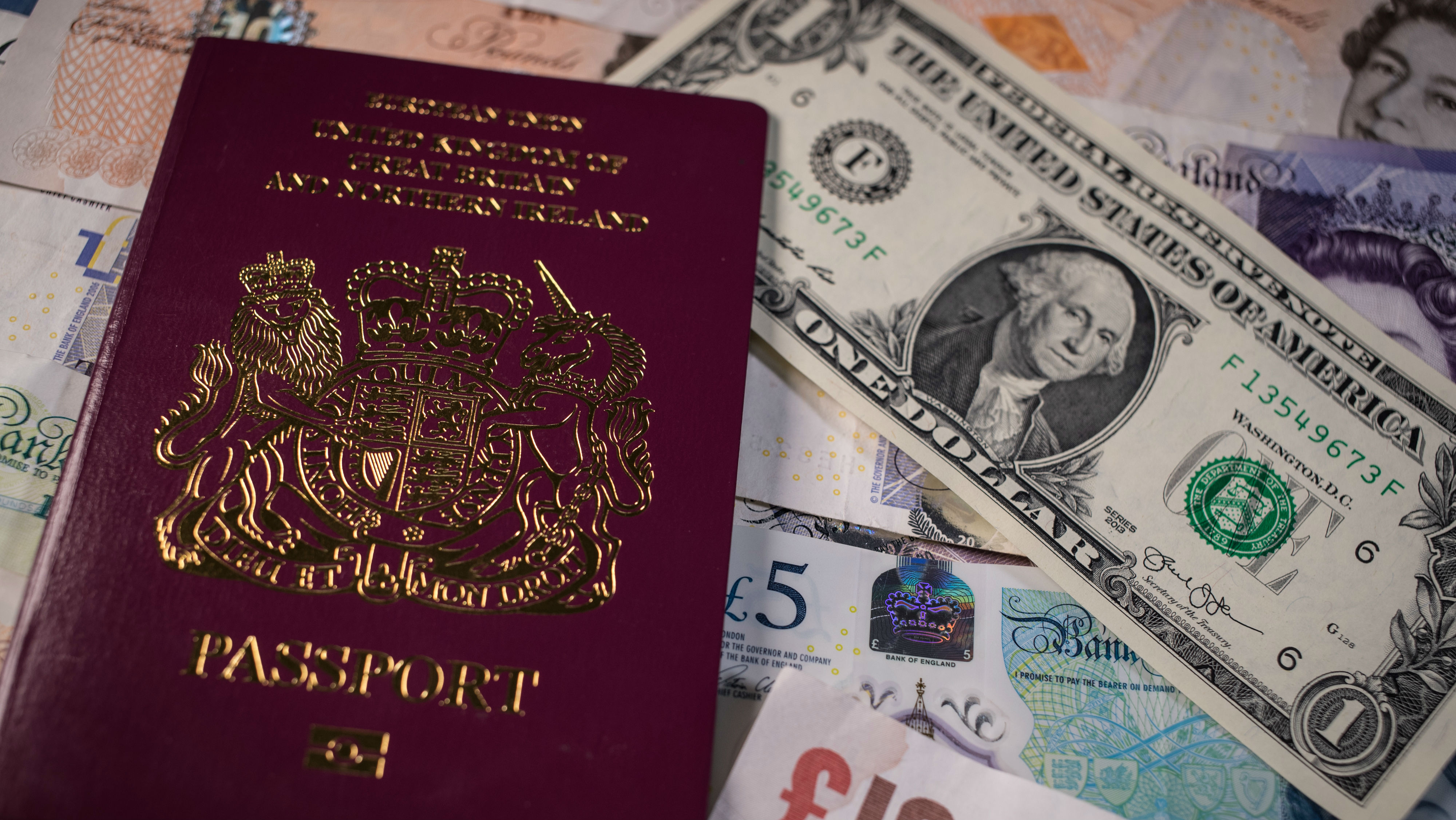Article 50: What will Brexit mean for me?
How leaving the EU could impact on your life – from the cost of holidays to getting a sandwich at lunch

A free daily email with the biggest news stories of the day – and the best features from TheWeek.com
You are now subscribed
Your newsletter sign-up was successful
Brexit formally begins today, nine months after the UK voted in a national referendum to leave the EU.
Theresa May's government now has two years to thrash out the terms of the departure, including how much the "divorce bill" will be, and establish new trade deals with the 27 other member nations.
Here are some ways Brexit could affect the daily lives of Britons.
The Week
Escape your echo chamber. Get the facts behind the news, plus analysis from multiple perspectives.

Sign up for The Week's Free Newsletters
From our morning news briefing to a weekly Good News Newsletter, get the best of The Week delivered directly to your inbox.
From our morning news briefing to a weekly Good News Newsletter, get the best of The Week delivered directly to your inbox.
Holidays in the sun to Costa Lot?
Voting for Brexit has already had an impact on the millions of Britons who travel elsewhere in Europe for their summer holidays as the decreased value of the pound has reduced the amount of foreign currency in their pockets and put up expenses abroad.
According to Sky News, "depending on deals struck with EU", flights could become more expensive as we leave the bloc.
Another extra cost could be a visa waiver charge. UK travellers could be required to pay a £10 charge in order to enter EU countries on holiday, the broadcaster says.
A free daily email with the biggest news stories of the day – and the best features from TheWeek.com
Bills, bills, bills
Roaming charges are banned for EU citizens sending text messages and searching on the internet in all countries, but Brexit might mean Brits have to pay up when abroad from 2019 onwards.
A new, blue passport
As the existing UK passport is embossed with "European Union", it will need replacing. However, the roll-out of new ones will only happen once travellers' current passports expire.
There is much chatter of the UK version being blue, almost 30 years after the decision was taken to move to the EU burgundy.
No more Pret a Manger sandwiches?
Sandwich shop Pret a Manger, which has almost 300 branches in the UK, more than half of them in London, warned earlier this month that it will struggle to staff its outlets if free movement is ended by Brexit because only one in 50 applicants for its jobs is British. Some 65 per cent of staff are from other EU countries.
HR director Andrea Wareham told a House of Lords committee she was "absolutely concerned" by the government's insistence it will focus on allowing skilled workers into the country and said recruiting British workers would only happen "over a long period of time", the BBC reported.
Jobs at risk?
Some sectors doing trade with the EU, particularly financial services, car manufacturing, oil and gas, might be at risk, says Sky News.
However trade negotiations pan out between the EU and the UK will determine whether jobs are affected. But other industries will probably flourish - particularly tourism, as foreign visitors take advantage of the fall in the pound.
The end of pet passports?
At the moment, dogs, cats and ferrets can be taken anywhere in the EU if they have a pet passport, a scheme which originated in the UK, where rabies has long been eradicated, and then taken up by the EU.
This will "likely" continue, says Sky, but again, "it depends on the negotiations". Because rabies does not exist in the UK, there is a good chance our animal friends will be welcomed overseas, however the talks pan out.
A hard border for Ireland?
Once the UK has left the EU, it will share only one land border with the bloc: the line that divides Northern Ireland from the Republic of Ireland.
According to The Times, business owners in counties on both sides are fearful that a hard border with customs checks may have to be put in place after Brexit. As the two parts of the island do more trade with each other than anywhere else, tariffs and red tape could be disastrous.
-
 ICE’s facial scanning is the tip of the surveillance iceberg
ICE’s facial scanning is the tip of the surveillance icebergIN THE SPOTLIGHT Federal troops are increasingly turning to high-tech tracking tools that push the boundaries of personal privacy
-
 ‘My donation felt like a rejection of the day’s politics’
‘My donation felt like a rejection of the day’s politics’Instant Opinion Opinion, comment and editorials of the day
-
 Trump wants a weaker dollar but economists aren’t so sure
Trump wants a weaker dollar but economists aren’t so sureTalking Points A weaker dollar can make imports more expensive but also boost gold
-
 The high street: Britain’s next political battleground?
The high street: Britain’s next political battleground?In the Spotlight Mass closure of shops and influx of organised crime are fuelling voter anger, and offer an opening for Reform UK
-
 Biggest political break-ups and make-ups of 2025
Biggest political break-ups and make-ups of 2025The Explainer From Trump and Musk to the UK and the EU, Christmas wouldn’t be Christmas without a round-up of the year’s relationship drama
-
 ‘The menu’s other highlights smack of the surreal’
‘The menu’s other highlights smack of the surreal’Instant Opinion Opinion, comment and editorials of the day
-
 Is a Reform-Tory pact becoming more likely?
Is a Reform-Tory pact becoming more likely?Today’s Big Question Nigel Farage’s party is ahead in the polls but still falls well short of a Commons majority, while Conservatives are still losing MPs to Reform
-
 Taking the low road: why the SNP is still standing strong
Taking the low road: why the SNP is still standing strongTalking Point Party is on track for a fifth consecutive victory in May’s Holyrood election, despite controversies and plummeting support
-
 Is Britain turning into ‘Trump’s America’?
Is Britain turning into ‘Trump’s America’?Today’s Big Question Direction of UK politics reflects influence and funding from across the pond
-
 What difference will the 'historic' UK-Germany treaty make?
What difference will the 'historic' UK-Germany treaty make?Today's Big Question Europe's two biggest economies sign first treaty since WWII, underscoring 'triangle alliance' with France amid growing Russian threat and US distance
-
 Entente cordiale: will state visit help UK-French relations get over Brexit?
Entente cordiale: will state visit help UK-French relations get over Brexit?Today's Big Question The King, a keen Francophile who has a warm relationship with Emmanuel Macron, will play a key role in state visit